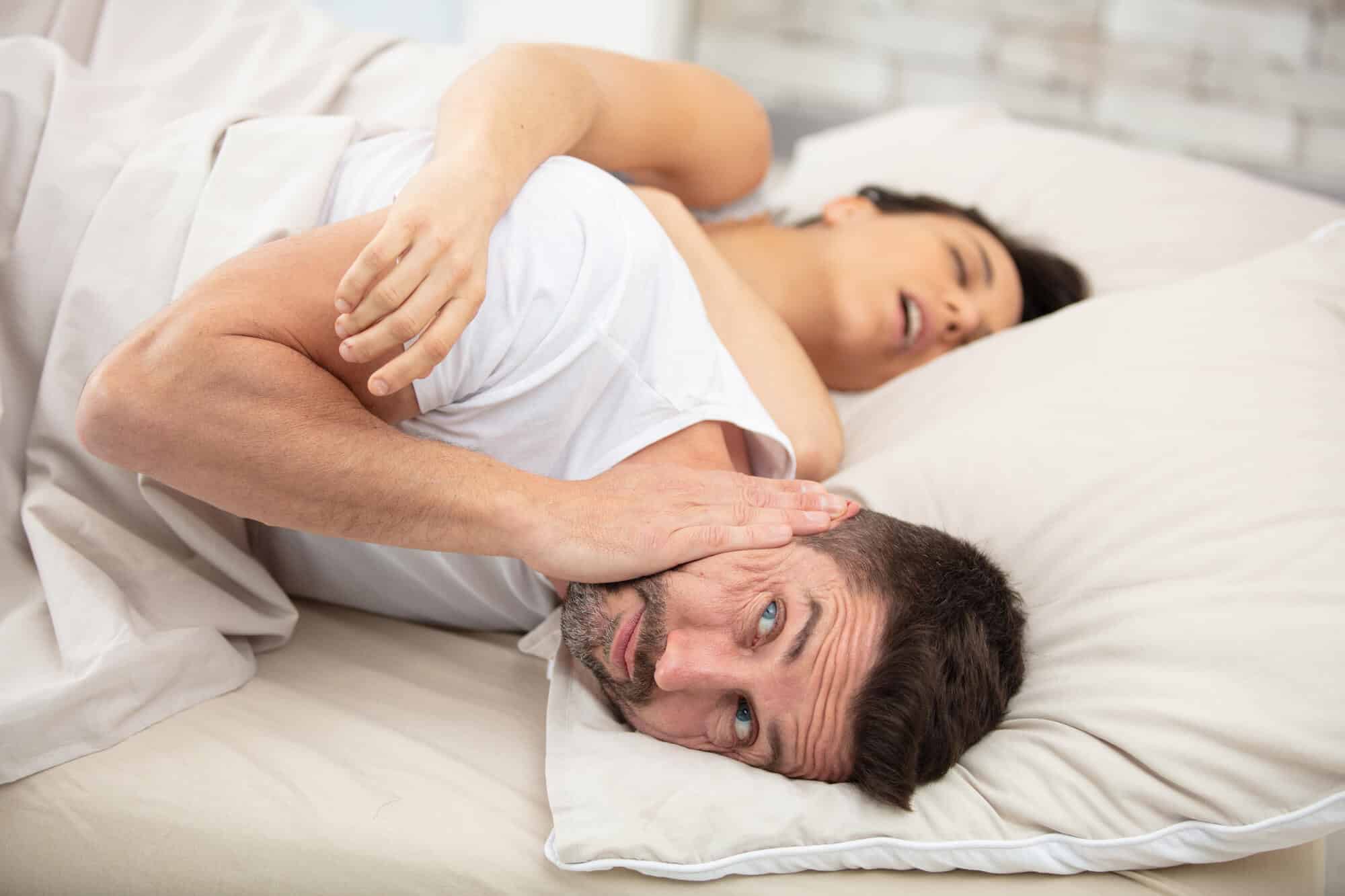50-year-old women who snore are at increased risk of having sleep apnea

Are you over 50? You shouldn't snore. A new study by Tel Aviv University found that women aged 55 and older who snore in their sleep are at an increased risk of sleep apnea, which can cause death. The researchers warn and say that in most cases, since the phenomenon occurs during sleep, the women who suffer from sleep breathing disorders are not aware that they suffer from the problem and that they are at increased risk of sleep apnea.
What happens to us when we sleep?
The research was conducted under the leadership of Dr. Alona Amoudi Perlman, Prof. Ilana Eli, Dr. Javan Soliman and Dr. Pasia Friedman-Robin from the Department of Oral Rehabilitation At the Morris and Daniel Goldschlager School of Dentistry at the Sackler Faculty of Medicine. The study was published in the prestigious Journal of Clinical Medicine.
As part of the study, which included hundreds of women, the researchers examined two groups of Israeli women: relatively young women aged 40-20 (that is, before menopause), and women aged 55 and over, after the cessation of the menstrual cycle. They found that about 15% of older women are at significant risk of sleep apnea compared to only about 3.5% of young women. In addition, they found that 11% of women who snore (one out of every 10 women), are at increased risk of sleep apnea, compared to only 1% among women who do not snore.
Prof. Eli explains that sleep breathing disorders range over a wide spectrum - starting with mild snoring and ending with the most serious and dangerous disorder - sleep apnea, which causes a decrease in the concentration of oxygen in the blood and can be life-threatening. In addition, if the phenomenon is not diagnosed and treated in time, it may contribute to the development of a variety of systemic diseases such as hypertension, heart disease and stroke.
According to her, the difficulty in diagnosis is mainly the lack of awareness and under-reporting: people who suffer from the problem are not aware of it because it occurs during sleep. They may tell their doctors about fatigue, headaches, or sleep problems, and it is important that the attending physician makes the connection, asks the right questions, and even refers to further diagnosis in case of suspected sleep apnea.
"The lack of early diagnosis is especially noticeable in one of the vulnerable populations: women over the age of 50, who suffer from an increase in the frequency of sleep breathing disorders following the hormonal changes that occur during menopause. We wanted to examine and characterize the phenomenon in this group in order to turn on a red light when necessary," explains Prof. Eli.
Snoring and taking risks
As part of the research, the participants filled out dedicated questionnaires, which included a variety of questions such as: How do you feel when you get up in the morning: fatigue, headache, tension/stiffness in the muscles of the face, neck and jaw? Do you grind your teeth at night? Do you wake up during the night? Do you feel tired or sleepy during the day? And the question of the questions, which many women are ashamed to answer: do you snore? The data was weighted with physical indicators - BMI and neck circumference, which is known to thicken in old age, as well as demographic data such as work, number of children, marital status and more. The findings make it possible to define three categories of risk for sleep apnea: women at high, medium and low risk.
"We found a significant gap between the two groups - the young versus the relatively older. Among young women, 1.8% were at high risk and 1.8% at moderate risk of having sleep apnea, while in the elderly the rate jumps to 5.2% at high risk and 9.5% at moderate risk. In other words, about 15% of the older women were included in the categories of significant risk," says Prof. Eli.
In addition, the researchers found a high correlation between the risk of sleep apnea and the tendency to snore, which was more characteristic of women over the age of 50. According to findings, about 11% of women who snore (one in 10 women), may be at increased risk of sleep apnea. The researchers also point out that teeth grinding at night, a high BMI, and a relatively large neck circumference are additional warning signs. On the other hand, to their surprise, no significant differences were found between the two groups of women when it comes to fatigue and falling asleep during the day - a distinct phenomenon among men who suffer from sleep apnea.
Following the findings, the researchers turn to the doctors, and especially to those who focus on the face and jaw area - the dentists: "Pay attention to the symptoms that may indicate a risk of sleep apnea. Present to your elderly patients the relevant questions that no one asks, such as: do you snore? Do you suffer from headache/neck pain when you wake up? Ask them to fill out a dedicated questionnaire to identify the risk of sleep apnea. Pay attention to the state of the teeth - could it indicate teeth grinding at night? Pay attention to the thickness of the neck, which tends to expand in old age. And the bottom line, if you have identified a patient who is at high risk, refer her to sleep diagnosis specialists. This way we can timely diagnose women who are 'under the radar' due to the lack of awareness and under-reporting, and provide them with adequate and life-saving treatment."
More of the topic in Hayadan:
